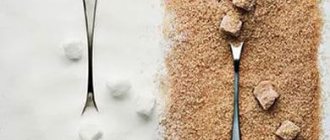Diapers - both for and against them have been spoken out since the moment of their invention by both specialists and parents of newborn toddlers. And although it would be more correct to call them diapers, the original nickname “diapers” has become so firmly ingrained in the consciousness that products from any manufacturer are already called in the old fashioned way. Undoubtedly, diapers greatly facilitate working days and sleepless nights for mothers and provide babies with maximum comfort. However, those who appreciate the benefits of disposable pads for some reason prefer a mountain of washing when it comes to a child. Let's figure it out, are diapers as harmful as the rumors reaching us make them out to be?
Historical and geographical perspective
The inability to restrain its natural needs characterizes any newborn child. Therefore, there were analogs of “diapers” at all times, among various nationalities. Their type and material of manufacture depended on climatic conditions, religious and other traditions. In countries with hot climates, children's genitals were mostly left open, which allowed the diapers to dry faster. The children of the desert were dressed in some kind of sand diapers that absorbed moisture. The nomadic peoples of the north came closest to the modern invention: they placed compressed moss diapers on their newborns, which had excellent absorbency and separated from the baby’s skin in the form of a dense mass as it was filled.
Middle-class mothers used reusable rags, which were continuously soaked, washed, dried and ironed, and again placed between children's legs in the form of diapers. The problems this cycle creates are obvious:
- The baby’s “pees” reach several dozen times a day, so you need to have a huge supply of rags, a place to dry them and time for washing and ironing;
- night awakenings plague women who are forced to frequently get up, wash, change diapers and change babies;
- It’s impossible to take a long walk with your child, and getting ready for a walk turns into a nightmare when you don’t have time to dress the baby and he’s already wet.
Useful: What should you give your child for 1 year and what should you refuse?
Surprisingly, the world owes the invention of diapers to a man. The deepest love for his work, family and, of course, for himself pushed Victor Mills, a chemical technologist at the famous company Procter & Gamble, in the 50s of the last century to try to make the everyday life of mothers drowning in an endless series of washing and ironing reusable diapers. He experienced all the difficulties women experience when caring for newborns “on his own skin,” caring for his young grandchildren. The first experiments with diapers packed in plastic panties were carried out on them. It is clear that the idea of packing the most delicate skin in plastic was not the most successful, and diapers went through a number of transformations before they were put into mass production. Then, in 1961, the topic of whether they were harmful was not even raised, because hundreds of parents of boys and girls appreciated the advantages of diapers compared to reusable models.
The advent of diapers
Oddly enough, the inventor of diapers was not a mother tired of doing laundry, but an American professor who worked as a chemist. Victor Mills, having already raised his own children and cared for three grandchildren, decided to create something that could replace impractical diapers and save women from unnecessary hassle.
It must be said that his invention quickly became popular: every company offering products for children now sought to improve the American’s developments and sell more comfortable and high-quality diapers than their competitors.
Since then, disposable diapers for newborns and older children have become firmly established, and young parents can no longer imagine how previous generations coped without such a convenient product.
However, even in our time, not everyone uses diapers. Some are confused by the rather high price of this disposable item, others advocate naturalness, and still others are afraid of common myths about the dangers of diapers. They will be discussed further.
The dangers of diapers
In newborns, thermoregulation is imperfect, the body quickly heats up. And if the temperature in the room is high, the child may be severely overheated. To prevent diapers from harming the newborn, it is necessary that the room be fresh - no more than 22 degrees Celsius.
Damage to diapers - possible causes
- Impaired tactile reactions . The child needs the affection of his mother, contact with various materials and his own body. If your baby is deprived of these sensations, he may lose his natural reactions. During the experiments, it was found that children who wore diapers for a long time are afraid to touch new things, and they have disturbances in the emotional sphere. The harm of diapers is obvious.
- Loss of urinary control . Enuresis can occur if a child wears diapers after 2-3 years. As a result, self-esteem decreases and the psyche suffers.
- Lack of opportunity to fully study the body in a diaper. The complete picture of the child’s self-image is lost, and as a result, developmental delays may occur.
Common Myths
Like any innovation, diapers, when they appeared, aroused not only approval, but also skepticism, especially among older generations, accustomed to relying on everything natural.
Often, unfounded fears force modern mothers to treat diapers with distrust and buy diapers.
Myth No. 1
Among the most frightening myths, perhaps the main one is the myth about the dangers of diapers for boys. After all, the male genital organs begin to form from the first days of life, and if the testicles overheat, this will lead to a pathology that causes impotence and infertility in adulthood.
It must be said that, indeed, overheating is harmful for boys, however:
- in the diaper the temperature is only a degree or two higher, and this is insignificant;
- if the diaper is changed on time (as it is full), then no “greenhouse effect” occurs in it, the skin breathes, and air reaches it in sufficient quantities.
Myth No. 2
Another frightening myth is that diapers will cause babies' legs to become crooked and their gait to deteriorate.
It also has no basis:
- curvature of the legs can only arise from pathologies, for example, rickets, but not from wearing soft diapers;
- the spread position in which the baby’s legs are when he is wearing diapers, on the contrary, is useful, as it contributes to greater development and flexibility of the hip joint.
Regarding possible problems with gait - it develops later, and the diaper does not have a significant effect on it.
But the first steps in diapers for 13-19 month old babies are really a little more difficult to take. Research has shown that babies this age are more likely to be spanked on their butts. But these statistics do not apply to children 20 months and older.
We continue to debunk myths
Those who ask whether diapers are harmful for boys are unlikely to be familiar with their modern design. Behind the outer primitive structure of diapers lies complex technology that is constantly being improved by developers to ensure dryness, softness, anatomical conformity and comfort. Now you can find items with Velcro or elastic bands, which are easy to wear even in public places. Disposable briefs usually consist of the following parts:
- an outer “breathable” porous layer that provides air flow to the baby’s skin and “locks” excess liquid, preventing it from escaping;
- an internal soft layer with good permeability, directly adjacent to the baby’s skin;
- the thinnest conductive layer ensuring uniform distribution of liquid throughout the diaper. Thanks to this layer, you don’t have to worry about the appearance of lumps that create discomfort for the baby;
- an absorbent layer capable of retaining huge amounts of moisture by turning it into a gel;
- an additional barrier in the area around the baby’s legs;
- fasteners that make it so convenient to wear disposable diapers.
Useful: Symptoms, treatment and prevention of thrush in young children
The safety of diapers is determined by numerous clinical tests for allergenicity, toxicity, mutagenicity and other potential harm to boys and girls. With such strict requirements, we can say with confidence that the products are absolutely not harmful to the health of babies. However, the approach of the parents themselves plays a big role: choosing the right size and timely changing an overfilled diaper, hygiene for the boy or girl when changing panties and regular air baths. Of course, you can argue further, even after all the facts in defense of diapers, or make a decision about the comfort for yourself and your baby. The choice is yours!
The truth about the benefits and harms of diapers
Having dealt with the myths, let's move on to more truthful and scientifically based information about diapers for newborns.
They have undeniable advantages:
- Mom does not need to spend a lot of time doing laundry, she feels free, eats better and rests more, which cannot but affect the overall emotional background; calm mother - calm baby.
- The child sleeps better and does not wake up at night because he is wet. This saves mom from repeated night marathons.
- The baby's skin does not come into contact with wet fabric, as happens when using diapers. Therefore, there is less or even no irritation, redness, or diaper rash.
- When walking, especially in the cold season, the child is always reliably protected and is dry and warm. And regular contact with cold, wet diapers during walks can lead to frequent illnesses.
- The baby feels more free in diapers than in diapers and can move his legs. For children taking their first steps and learning to use the potty, there are also special diapers-panties with elastic bands. They allow the baby to take them off and put them on independently.
Possible harm from diapers:
- Despite the fact that diapers are made from hypoallergenic materials, they are not natural and can cause an allergic reaction. In this case, you just need to change one brand of diapers to another. For the same reason, it is better to buy unfamiliar diapers first in a small pack rather than in a large package, in case they do not fit.
- If diapers are not changed on time, a greenhouse effect will occur in them, which will lead to diaper rash or irritation. Even “breathable” diapers cease to be so as soon as the baby goes to the toilet for the first time. So you need to change them as they are filled, but at least once every 3-4 hours.
- Constantly wearing diapers can lead to a distortion of the baby’s perception of his own body, because the perception, and then the image, is formed through direct study, which diapers will interfere with. Therefore, you should not constantly use them - you need to regularly give your baby air baths.
- You should not allow your baby to play with diapers, because if they tear, the absorbent layer could get into his mouth, which can be dangerous.
The benefits of diapers
A big advantage is the use during sleep, which allows the child to sleep peacefully the whole night, and the mother does not need to constantly wake up the baby to change clothes.
There is one more advantage. Many women who raised their children in diapers are familiar with this situation: they didn’t have time to go out for a walk with the child, but he had already peed himself. There’s no time for a walk; you need to urgently run home and change your baby’s clothes. So it turned out that all the mothers could not go for a walk with their children, for fear of ending up in such a situation. With diapers, this problem is easily solved, since they keep the child dry while walking.
When a child is in gauze or cloth diapers, contact with the skin cannot be avoided, which can cause irritation and infantile dermatitis. If diapers are not changed on time, the child may also contract inflammation of the genitourinary system due to the rapidly increasing number of bacteria.
Based on the above facts, we can draw the following conclusion: the correct use of disposable diapers practically does not cause harm to the health of your child.
I would be grateful if you click on the social network buttons and share with your friends! I wish you good luck and good mood! Thank you!
Opinions of authoritative experts
Well-known pediatricians expressed their opinion regarding diapers for newborns.
The famous pediatrician Komarovsky believes that diapers are absolutely harmless if you follow the rules for their use, and are an excellent help for parents, relieving them of unnecessary hassle.
Elena Solomonovna Keshishyan, Doctor of Medical Sciences, Professor at the Moscow Research Institute of Pediatrics and Pediatric Surgery, believes that diapers undergo a sufficient number of laboratory studies and tests before they become available for sale. Therefore, parents should not worry about possible harm from chemical compounds.
She also says that a large number of studies have been conducted on male infertility, and the connection of this pathology with wearing diapers has never been established.
How to choose the right diaper
In order for diapers to be beneficial and not harmful, it is important not only to use them in accordance with the operating rules, but also to select them correctly. We will talk about this in more detail below.
When choosing which diapers are best for newborns or older children, be guided by the following criteria:
- Product size. It is determined depending on the weight of your baby, but if the child is chubby, it is better to take slightly larger diapers so that they do not put pressure on the tummy. At the same time, it is important that they are not too loose, since in this case they will leak.
- For newborns, it is better to buy special diapers with a recess for the navel, which will not come into contact with it and prevent it from healing normally.
- For children who are already starting to walk and are potty training, it is better to buy cheap diaper panties rather than diapers, since they restrict movement less and also allow the child to take off and put on the product himself, thus teaching him to be independent.
- Boys and girls can buy diapers depending on their gender. They differ in the location of the absorbent layer - in diapers intended for girls, it is located at the bottom, for boys - in the front.











